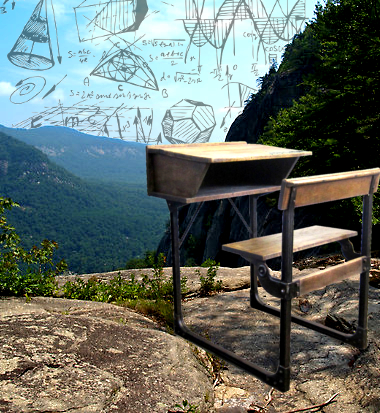PM's prizes for stunning scientists
 Two of this week’s Prime Minister’s Prizes recognised top teachers from across the science education system.
Two of this week’s Prime Minister’s Prizes recognised top teachers from across the science education system.
The Prize for Excellence in Science Teaching in Secondary Schools went to WA teacher Suzy Urbaniak, while NSW teacher Gary Tilley won the Prime Minister’s Prize for Excellence in Science Teaching in Primary Schools.
Geoscientist Suzy Urbaniak says science must be hands-on.
“The science in my classroom is all about inquiry and investigation, giving the students the freedom to develop their own investigations and find their own solutions. I don’t believe you can really teach science from worksheets and text books,” she said.
Over the past 10 years, Suzy has run 45 field trips throughout Australia and internationally, taking her students to World Heritage sites including Shark Bay to study the stromatolites, and biodiversity hotspots such as the Fitzgerald River National Park.
“Most importantly, we go to working mine sites where the students interact with people who work at the coalface, which demonstrates the career paths that science and engineering can take them on and provides quality networking opportunities,” she said.
“Our students are great learners; we just need to provide them with the best style of learning. My most disengaged students have become engaged when they are doing hands-on work, when their learning is being facilitated, rather than being taught out of textbooks. You can almost see the lightbulb switch on when they’re doing these investigations in my classes.”
The winner of the science prize for primary teaching, Gary Tilley, says science is the key to opening up young minds.
“In over 30 years of teaching, I’ve never seen a primary school student who isn’t curious and doesn’t want to be engaged in science. Once they’re switched onto science, it helps their literacy and numeracy skills, and their investigative skills. Science is the key to the whole thing,” he said.
At Seaforth Public School, he and his students have painted almost every wall in their school with murals of dinosaurs and marine reptiles, and created models of stars and planets, to encourage excitement and a love for science. The school is now known by local parents as the ‘Seaforth Natural History Museum’.
“Communicating science, getting children inspired with science, engaging the community and scientists themselves with science to make it a better place for the kids—that’s my passion,” he said.
As a specialist science teacher, Gary teaches science to every child in the school from kindergarten onwards.
“We start in kindergarten with some experiments with water and gravity. And we build on these concepts in later years, such as in Years 3 and 4 where we look at pollution and improving water quality.”
“This prize recognises the fantastic effort that a whole school community has put together. I hope other schools see what we’ve done and consider it as a road forward for them to make science front and centre, and get their students excited by science too.”







 Print
Print